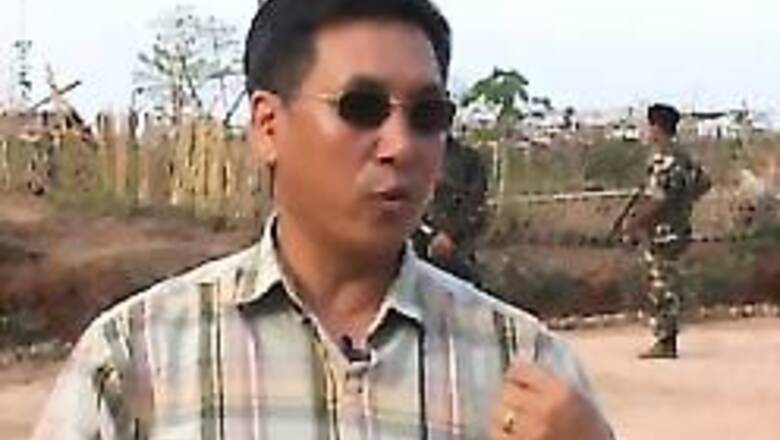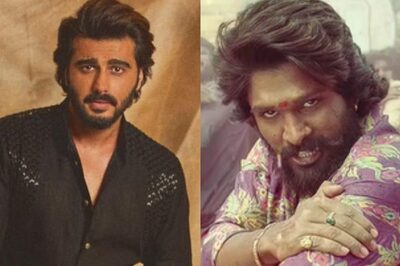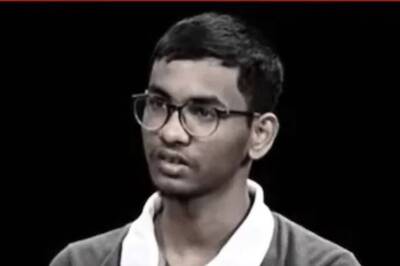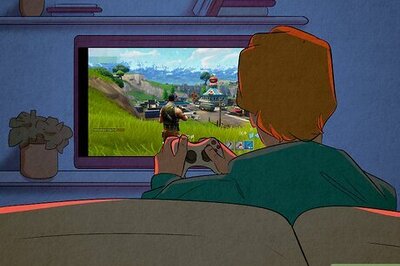
views
In an exclusive interview, the convenor of the Ceasefire Monitoring Cell of National Socialist Council of Nagaland (NSCN-IM), Brigadier Phunthing, tells V K Shashikumar, Special Investigations, CNN-IBN, about his experiences in the battlefield and how his group has sustained the Naga movement over the years.
V K Shashikumar: We were discussing about the movement and its implications on the entire region. We were talking about some groups who have approached you. Can you tell us more about that?
Brig Phunthing: Before the ceasefire, there were a lot of people who felt that it is their right after having felt the discrimination from all sides. The United Liberation Front of Assam (ULFA), for instance, came and we helped them. From Manipur came the United National Liberation Front (UNLF), which broke away from the People's Liberation Army (PLA).
Even if you see from the Assam side, you now have United People’s Democratic Solidarity (UPDS) and other groups that we have helped. It is not that we have gone and instigated them. They came to us for help and we did not say no to them at that period of time.
V K Shashikumar: But if you put ideology apart, then there are other logistical problems in running a movement -- like getting weapons and ammunition. So. how difficult is it for the National Socialist Council of Nagaland (NSCN)-IM to get all this?
Brig Phunthing: It is not as difficult to get ammunition and weapons as people think because you get it everywhere. It’s just a question of how you put yourself into it. If you are dedicated to a cause, then nothing is impossible. That is how we have survived.
PAGE_BREAK
V K Shashikumar: Talking about other armed struggles -- like what is happening in Sri Lanka or the Cambodian situation, the Myanmar situation -- had you been closely interacting with them before the ceasefire?
Brig Phunthing: Yes, we have had a lot of interaction. We have tried to see the situation from different perspectives, because in a movement you cannot survive on your own. You have to have partnerships everywhere. This is how it works.
V K Shashikumar: You have a civilian side and a political leadership, most of whom have risen to the ranks and we have people like you who are active military people.
Brig Phunthing: From Day One, we have had two structures, the civil structure and the army wing. But then, before the army wing came into being, the Naga movement was a civilian movement. But when the Government of India (GOI) began using force, the Naga people organised the Naga home guard and slowly evolved itself into a Naga army. Through experience, this structure has changed and a new structure has come about. But we still have the two structures and the Naga movement is no different in that.
V K Shashikumar: Lately, you have been into a struggle with the K-faction. Your observation on that?
Brig Phunthing: We have had no struggle with them. Why this thing has happened is because of the GOI’s way of looking at the Naga issue, trying to use them, thinking that by using them they would utilise us or weaken us. But, in fact, it strengthens us more because people know it.
And this is the reason why they have been trying to create a situation here and there and the GOI has done nothing, literally nothing. There was even a political discussion at the highest level. They have given a commitment that they will try to deal with the situation, but they have not. In fact, they have made it loser. So, when a master is pulling the string, than something goes wrong.
PAGE_BREAK
V K Shashikumar: But for peace in Nagaland...
Brig Phunthing: I don’t think it has a question of prerequisite. It has different situations and it has different connotations. So if he (Khaplang) is willing and as we have said people are talking about reconciliation and unity, then we could reconcile. Reconciliation is a gradual process. You cannot expect reconciliation and unity overnight. People have been trying to create that situation (of overnight reconciliation) to create more confusion.
V K Shashikumar: Where did you get the expertise to fight and to handle weapons? You are certainly not an army, yet you run a full-fledged institution virtually. So, how did this come about?
Brig Phunthing: In a movement, in a revolution, it is said that you to learn the skills through battlefields and experience. You never learn from training. We give them basic training only. But, the person comes to learn when he moves into the battlefield; by sweat and blood, he learns it and through that only he comes up.
V K Shashikumar: Did other countries help in the process?
Brig Phunthing: Before the ceasefire, in the '60s we had been able to go to China. We had been able to go to undivided Pakistan, especially Eastern Pakistan and now Bangladesh. Then they had helped. We have been fighting with the Government of India since the last 50 years -- it's a guerilla warfare. We have not gone into a conventional war, because we cannot afford it.
PAGE_BREAK
V K Shashikumar: It is also said that during the ceasefire, you used the ceasefire as an opportunity to increase the strength of your force and to modernise yourself.
Brig Phunthing: Everyone has. It is a way, the mindset of Indian Government has to change. It is because they have said that they really want peace to bring about a settlement that the NSCN (I-M) has gone all out. Our collective leadership has made a statement that we will leave no stone unturned whatsoever to find a way for settlement.
However difficult it may be and there may be trials, but it is going on. People have been making lot of accusations, throwing stones at us even. But then, we have been going on gradually.
But, since the Government of India has been using their armed forces to suppress us even at the ceasefire period, you can’t expect the NSCN to say that the peace will come down from the heaven. If it is so, than we have to be prepare for it. They have always said, be prepared for the worst. This is what the Indian Army has always said.
PAGE_BREAK
V K Shashikumar: The Naga leadership has suggested that the ideal formula for a settlement would be some kind of an inseparable bonding between the Naga people and India. Now within that inseparable bonding, what will the role of the Naga army be?
Brig Phunthing: Our leadership has made it very specifically clear that there will be a Naga army because the people of Nagaland are the right people to defend their own land. The people from Maharashtra and people from Delhi are not going to defend my land.
Because in 1962 we have learnt a lesson when the Chinese came in. The whole of Assam valley was taken away and then Nehru shouted from Delhi, saying "my heart goes out for people of Assam." What happened? Of course, the Army says we have learnt our lesson. No. If you look through the histories, there is nobody who can defend other's land. It is the people who have the right, the courage to defend their own land. So, Nagas must have their own army to defend their land.
V K Shashikumar: Do you have to collect taxes to keep the movement alive?
Brig Phunthing: Money is always important in a movement. Why does India or the world collect taxes legitimately? It is as simple as that. It is our legitimate right. So, no one can say that you cannot collect taxes. It is the people that give us taxes. It is their obligations to the movement, not to the movement alone but to say that they are Nagas.
V K Shashikumar: So, if I have to stay in Nagaland, than how much tax do I need to give?
Brig Phunthing: According to your work.
PAGE_BREAK
V K Shashikumar: How do the ordinary Naga people deal with two governments — one elected and the other a parallel administration run by NSCN-IM?
Brig Phunthing: This thing is very complicated, no doubt. The movement, which is going on, has not recognised the situation the Government of India has created. Having created the so-called Nagaland state, we are talking not only about the Naga people of the north-east region, but also international areas like Myanmar. We are talking about the whole of Naga areas.
V K Shashikumar: On the road itself, you might have your armed cadres, you might have the state police and Indian Army. And everyone passes by each other without acknowledging each other?
Brig Phunthing: Before the ceasefire, it was not written here (forehead). NSCN is not written on the forehead. We walk as normal people until someone comes or spots us and we are arrested. Sometimes, they used to carry out frisking to check the movement and then some people got arrested. As of now, until you say that you are an NSCN, everyone moves without interfering.
V K Shashikumar: So what are the elements of your parallel government?
Brig Phunthing: We have a government and a court where people go, file their cases and then our judicial processes solve those cases.
V K Shashikumar: But sometimes do you think it would be a tough situation for an ordinary people to balance between the revolutionary government and the state government?
Brig Phunthing: Definitely. People may say that there are so many governments. So, you choose. The choice is yours. If you think, you are a Naga and you want to live independently, you will have to choose. Most of the people come to us when they feel they have not got justice from the state government. In the villages, we have carried out what we can, as much as possible. There may be some unsatisfactory things, which we amend from time to time.
PAGE_BREAK
V K Shashikumar: Do people voluntarily come and submit their contribution to the movement? How does the system operate?
Brig Phunthing: It is voluntarily given. But then sometimes, it’s unwise to say it also. If I have to collect the tax, you have to give it to me willingly. But if someone asks you why you have given the tax, than you would not say that you have given it willingly. Because you fear being caught and tortured by the police or Indian Army and you will say I’ve been forced. That’s how they try to move out from the frying pan to the fire. The people have learnt to survive.
V K Shashikumar: How do you keep in touch with your own people? How do you communicate?
Brig Phunthing: We have been able to sustain our movement through people-centric communication for a very long time. The world is changing fast, but the electronic system has not touched most of the Naga region. That is why we have been using the oldest method of communication, that is man-to-man contact. So, we relate to people. To a great extent, every Naga village is a republic. We talk to the village authorities to pass on to the people.
















Comments
0 comment